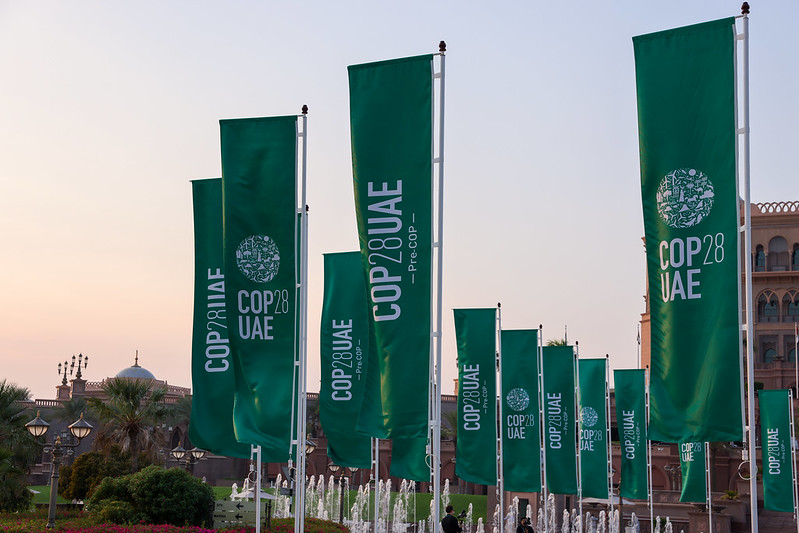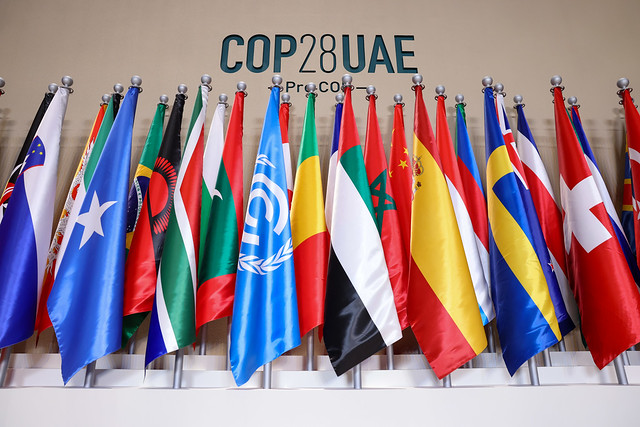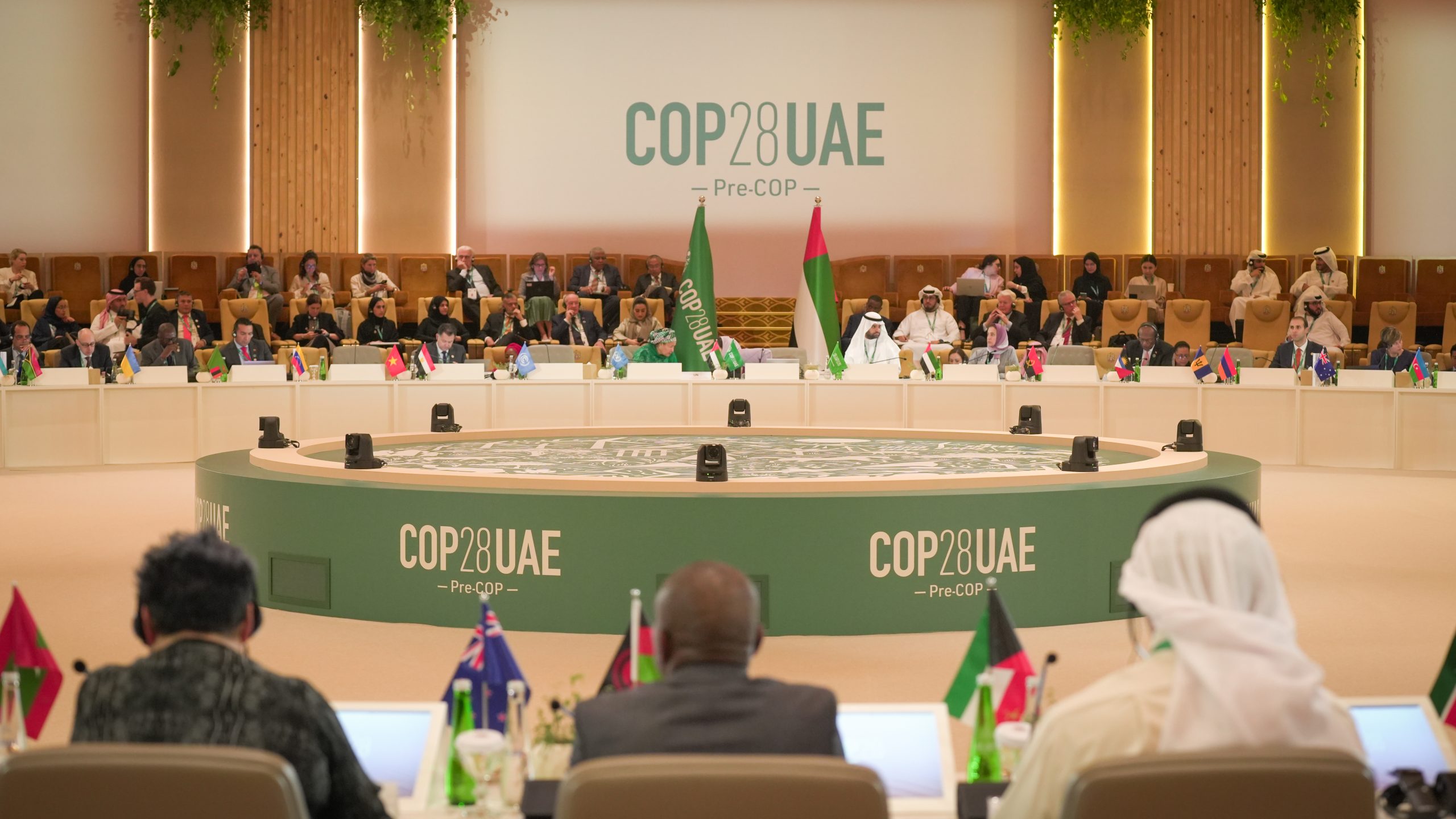From food systems to the review of emissions targets, a look at the key themes of the conference

Brazil arrives at the United Nations Climate Change Conference (COP 28) in Dubai with two triumphs up its sleeve: A 22% reduction in Amazon deforestation in the last year and improved climate targets, the NDC. According to Prodes/INPE’s latest survey, the country managed to prevent 133 million tons of carbon, equivalent to 7.5% of national emissions, from being released into the atmosphere in the last 12 months. As a result, Brazil has the credentials to take a leading position in negotiations, looking ahead to COP30, which it will host in Belém in 2025.
Learn more details on the main discussions at COP 28:
The Stalemate Over Fossil Fuels
One of the main uncertainties at the COP is how nations will address the fossil fuel issue, since the host and president of the conference, Sultan Ahmed Al Jaber, is the head of the United Arab Emirates’ state-owned oil company. In an interview with the Financial Times, he himself stressed the need for the sector to think about clean energy production.
“On the one hand, Brazil seems to be in a more comfortable position since we have seen lower rates of deforestation in the Amazon. We also launched the Amazon Summit earlier this year, which attracted a lot of international attention and positioned us as a country that is looking for solutions to forestry issues. On the other hand, there is increasing pressure to decide whether or not to explore for oil on the equatorial margin, with parts of the government on opposing sides. Thus, the signals for energy transition and a low-carbon economy are seemingly contradictory.”, assesses Suzana Kahn, Coppe/UFRJ director and member of the Brazilian Coalition’s Strategic Group.
Focus on Food Systems
However, the focus of the climate conference will be on food systems, which account for around a third of global greenhouse gas emissions. The COP presidency released the COP 28 Food Systems and Agriculture Agenda on July 24. The agenda includes four pillars, covering national leadership, non-state actors, scaling up innovation and financing. The goal is for governments to sign a Leaders’ Declaration on Food Systems, Agriculture and Climate Action and to integrate food systems and sustainable agriculture into national climate agendas.
As one of the world’s leading food producers, Brazil will play a key role in this debate. For the Brazilian Coalition, this is an excellent opportunity for the country, as the sector is also one of the most affected by climate change.
Low-carbon Agriculture in Brazil
In recent documents and contributions to public policies, the Brazilian Coalition has advocated that encouraging modern, productive, and responsible farming is essential to increase Brazil’s production, generate jobs and open new markets while ensuring food security, supplying renewable energy and moving towards the goal of zero deforestation. Brazil can expand its production without compromising a single centimeter of forest or other native vegetation.
Low-carbon agriculture development, resilient to climate change, requires long-term public and private investment for technological transition. Small farmers should be prioritized, given their potential contribution to environmental conservation and their vulnerability to extreme weather events.
Valuation of Ecosystems and Climate Finance
The Brazilian Coalition believes that the country’s move towards decarbonization is also related to valuing ecosystems. Therefore, it is necessary to maximize investments in nature-based solutions, such as reducing deforestation and restoration.
An article published last year in the magazine People and Nature showed that native vegetation recovery activities could generate more than 2.5 million jobs in Brazil, if efforts to meet the country’s voluntary climate target under the Paris Agreement, which foresees the restoration of 12 million hectares. It is expected that the federal government will announce a sustainable production program at COP 28, which foresees the recovery and conversion of 40 million hectares of low-productivity pastures into cultivable areas.
In the international arena, the Brazilian Coalition recommends that the country’s delegation at the COP advocate for advances in discussions on climate finance. Dates and deadlines must be set for the transfer of resources so that developing nations can develop climate change adaptation and mitigation policies.
Carbon Market
Following the regulation of Article 6 from the Paris Agreement at COP 26, establishing basic rules for operating the carbon market, the expectation is that rules will be established to assure transparency and mitigate risks such as double counting. In Brazil, the bill regulating the Brazilian Emissions Trading System (SBCE) is currently being addressed in the Chamber of Deputies. At this stage, there are no plans to include primary agricultural activities. However, this doesn’t imply that the agricultural sector will be completely excluded
“However, other tools should be used to steer the agricultural sector towards productivity gains with lower emissions, such as the expansion of the ABC program (Low Carbon Agriculture), integrated crop-livestock-forest systems (ILPF, in Portuguese acronym), efforts to restore pastures and degraded lands, and intensification of livestock production with a lower carbon footprint.”, emphasizes Marina Grossi, president of the Brazilian Business Council for Sustainable Development (CEBDS) and member of the Brazilian Coalition’s Strategic Group.
Global Stocktake and Climate Targets (NDCs)
COP 28 may represent a turning point in the climate agenda as it moves forward with the revision of targets voluntarily assumed by countries, the NDCs, to limit the increase in global temperature to 1.5 degrees Celsius, as agreed in the Paris Agreement. According to the UN, the current NDCs are insufficient to prevent the advance of global warming beyond minimally safe levels for humanity.
As the effects of climate change worsen, such as the increase in duration and frequency of heatwaves and floods, nations that are still far from meeting the goals of the Paris Agreement, such as those that are reluctant to reduce their use of fossil fuels, must be more closely targeted. Brazil, however, may be asked to take a stand on reducing deforestation in the Cerrado, which has recorded successive highs.
The Global Stocktake, which is the first assessment of global emissions since the inception of the Paris Agreement in 2015, revealed the need for nations to set targets before the UNFCCC, the UN’s climate panel. The commitments voluntarily announced by each country will not be enough to limit the increase in global temperature to the level set in Paris and defended by the scientific community.
Brazil updated its NDC in late October to reduce greenhouse gas emissions by 48% by 2025 and 53% by 2030, taking 2005 as the base year. This is an upturn on the figures announced in 2015.

